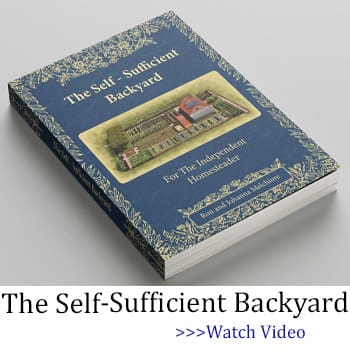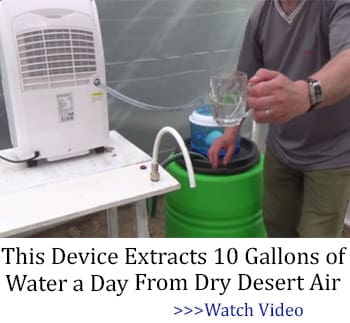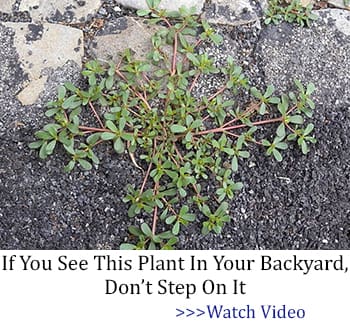When I embarked on my homesteading journey, I eagerly compiled a comprehensive to-do list, envisioning a wonderful life among nature. However, amidst all this, I forgot my checklist was missing a crucial component—the don’ts of spending life off the grid.
As a result, the aftermath was indeed a chaotic one, filled with numerous mishaps that I didn’t know how to restore. Being a passionate homesteader, I am committed to ensuring that my fellow homesteaders don’t encounter the same challenges.
Thus, in this post, I will share a few things not to do when going off the grid from my personal experience. Don’t worry, as I have also included some quick fixes that will help you navigate smoothly around these hurdles.
So, let’s begin with shaping a sustainable path to elevate your overall homesteading experience.
7 Things Not To Do When You Go Off The Grid
Going off the grid can be an exciting experience. However, to make the most of this adventure, it’s crucial to be mindful of certain pitfalls. Here’s a guide on what not to do when you decide to disconnect from the hustle and bustle of everyday life:
1. Unrealistic Vision Related to Life Off The Grid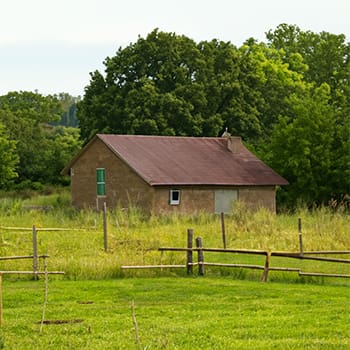
I always thought of living on a homestead as something that involved waking up to beautiful views and enjoying organic food. However, my imagination was instantly shattered when I spent some time on my friend’s farmstead and saw his hard work.
Unfortunately, unrealistic expectations can lead to disappointment and frustration. To avoid landing into such distress, it is better to focus on practical and achievable goals when embarking on this journey of getting closer to nature.
For example, when I decided to move to a homestead, I researched the available resources and the challenges that might arise. Doing so prepared me for a sustainable lifestyle even before starting the journey. Moreover, it also saved me from disappointment while giving me a reality check about how life would be off the grid.
2. Overlooking Budget and Planning
One of the most common mistakes when going off the grid is overlooking the importance of budgeting and planning. Living on a farmstead requires careful strategic planning to ensure you don’t ignore your finances.
A quick fix is to:
- Create a detailed budget that accounts for all your expenses
- Include land cost, construction materials, and ongoing maintenance on your checklist
- Plan for unexpected expenses to avoid financial strain
- Fix a limited budget for each aspect of your farmstead, such as maintaining livestock or arranging gardening equipment
Keep in mind that life on a farmstead is always unpredictable. To avoid any undesirable moment, you better plan ahead of time.
3. Using Improper Stockpiling and Canning Methods
My initial attempt at stockpiling eatables resembled more of a chaotic science experiment – pests invading food, pickles losing their crunch, and nearly everything hitting its expiry date. After a struggle of about three months, I finally mastered the art of stockpiling food while living on a farmstead.
Now, you can also store food for months without any unfavorable consequences. First, purchase some good quality air-tight containers to store dry eatables. Another pro tip is to keep the fresh groceries in the back of the container and let the older ones take the front seat.
Additionally, educate yourself on proper canning techniques before starting your off-grid life. You can research canning methods such as water bath canning for high-acid foods and pressure canning for low-acid ones. Consequently, you can also dig deeper into the basics of sterilization, dehydration, and pasteurization processes. The best resource I can recommend to you is The Lost Super Foods book.
4. Not Researching on Alternative Power Sources
In the quest for off-grid living, overlooking research on alternative power sources can be a major obstacle. Trust me, I have been there depending on conventional energy solutions, which literally had me end up in the dark for hours.
Long story short, before you begin creating your sustainable haven, thoroughly investigate and invest in alternative energy options. For instance, you can consider:
- Solar panels
- Wind turbines
- Micro-hydro systems
Furthermore, to make a better and more viable decision, assess the energy needs of your homestead and plan accordingly. Try to consult with renewable energy experts, attend workshops, and explore your neighborhood as well. This proactive exploration will give you a clear-cut idea of which power sources would work better in your region.
5. Disregarding Local Laws and Regulations
Every area or locality has its own laws and regulations. Adhering to these rules is crucial, as non-compliance can result in legal consequences. Let me tell you my firsthand experience with such an instance.
One day, I decided to install an in-ground basketball hoop on my farmstead. Eager to set it up, I began digging into the ground, unaware that it was illegal to do so in that area. Consequently, I had to pay a hefty fine to resume using my space.
With that, it was a wake-up call for me to always ask permission from legal authorities before breaking ground on any homesteading project. Additionally, if you are unsure of the relevant rules, research it on the state’s government website or maybe ask an experienced homesteader.
6. Ignoring Security Measures
Skipping security measures on your farmstead can actually land you in some serious trouble. No, I’m not asking you to build a medieval castle, but installing a secure fence around your homestead would go a long way. Doing so will help you keep pesky critters out and let your chickens roam without worrying about uninvited wild animals.
Oh, and if you’ve got valuable tools for gardening equipment, which I am sure you probably do, a secure shed will be your best friend for their storage. This will allow you to organize everything neatly without spending much.
Related: How To Make A Pressure Sensor Pad To Know When You Have An Intruder On Your Property
7. Neglecting Your Physical Strength
Living off the grid means embracing a hands-on approach to every aspect of life. From constructing a chicken coop to chopping wood, you have to do everything by yourself. In order to have yourself withstand this way of living, you need to strengthen your overall physical health.
So, what could be a feasible plan here? You must begin by making regular physical exercise a non-negotiable part of your routine. Moreover, try including lifting, carrying, and other strenuous activities in your workout schedule.
To sum it up, going off the grid is a rewarding journey, but it comes with its fair share of challenges. However, if you know what not to do when planning and maintaining your homestead, you can ace this journey without any hassle.
So, what’s holding you back? Lace up those boots, embrace the homesteader spirit, and bring your dream farmstead to life!
You may also like:
How To Heat Your Home Without Electricity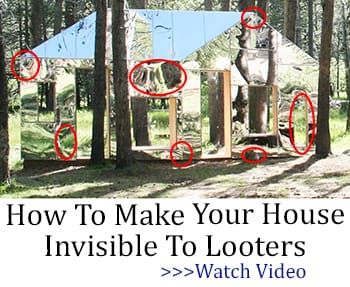
This Homemade Device Can Power Up Your Entire House 7 Days in a Row (Video)





